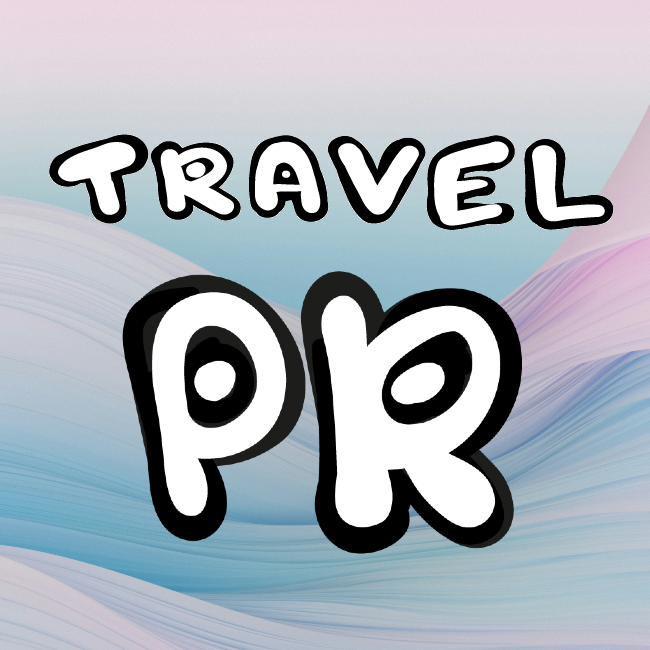Payton Hankins • October 31, 2025
ChatGPT, Plan My Vacation For Me: How Travel Startups Can Benefit From the Use of Artificial Intelligence
Travel PR expert panel

Author: Payton Hankins
Payton is a Communications major at Arizona State University who loves exploring how stories can bring people together. She looks forward to exploring the food and travel industry at PR ON THE GO, aiming to share experiences that highlight culture, flavor, and connection. She’s eager to use her passion for branding and strategic communication to help build a welcoming global community through meaningful storytelling in the Public Relations industry.
Tourists have the ability to rely on ChatGPT to plan the entirety of their vacation itineraries, recommend when to visit certain destinations, and highlight those “must-see” destinations. The implementation of artificial intelligence in society has become inevitable, but how can travel startups leverage this change?
I asked our PR and growth experts: How can travel startups benefit from tourists relying on artificial intelligence to plan their vacation itineraries? What does the role of artificial intelligence look like for travel entrepreneurs?
Here are the experts' insights:
- Train AI to develop itineraries personalized to clients
- AI is the greatest, free focus group in the world
- AI tools as a primary distribution channel
- AI as free research tools that shows broad consumer intention
- Optimize your offers, packages, deals for AI discoverability
@slightlyoriginal chatgpt can act as your own personalized tour guide when you're traveling. AI can enhance your trip to Paris, Morocco, or even your favorite local food dispensary. the more creative you get with AI, the more you'll enjoy using your ai #ai #Paris #travel ♬ original sound - Daniel Ford
Train AI to develop itineraries personalized to clients
Emily Reynolds, Owner at R Public Relations
"AI can help streamline internal operations and make bookings much easier. AI can also be trained to develop itineraries that are personalized to clients and get them closer to their ideal trip without additional effort. The important thing is to remember that AI is pulling from the internet, and not every restaurant, store, or AirBNB has a solid internet presence. Some independent research and human touch will always be required."
AI is the greatest, free focus group in the world
Delbert Baron Lee, President at Wynbert Soapmasters Inc.
"My work as VP of Sales for a major travel and tour company helped me realize, before I founded Wynbert Soapmasters, that the operating currency of the travel business is knowledge of what the customer wants. We view Artificial Intelligence not as a substitute for travel companies, but as the greatest, free focus group in the world. The data patterns that are coming out of AI-generated itineraries are a rich resource for learning what the traveler wants. These results show gaps between what the machines suggest and what the real, high-value, reason-for-travel experiences are that only a (human-run) travel company can provide.
Travel companies should stop trying to dovetail the itinerary with the machine, and start looking critically at its output. The adaptation is to see AI planned itineraries as raw market data. If thousands of AI inquiries are showing a demand for sustainable travel in one area, your company immediately sets up exclusive arrangements with local eco-lodges. Entrepreneurs benefit from carving out some special service niches that will fill in the shortcomings of a generalized AI plan, such as providing personal guides in AI-identified hotspots, or proposing food tours that are much beyond the top-ten lists sprewd out by AI. In essence, it is making proftable things out of the AI blind spots.
The function of AI to the travel entrepreneur is to be the gauge of the demand for a service. At my travel company, we used to manually analyze our booking data for indications of tendencies, and it was a cumbersome process. Today, an entrepreneur can get their net from AI travel forums, or from inquiry data, for an under-served market, within a period of weeks. Examples:- If AI seems to home in on the same smashed tourist traps, as it were, there is an opportunity here in putting together and proposing an exclusive access drive to an undiscovered site, thereby turning the predictable output of AI to the detriment of its human workmen, enough to provide the terminal edge, from the standpoints of anticipation and timing."
@dariamlnch #tuscany #lucca #tuscanyitaly #italy #italy🇮🇹 #travel #italytravel #exploretheworld #exploreitaly #solotraveler #solotrip #travelbucketlist #traveldestination #travellife #traveltheworld #recommendations #rec ♬ original sound - bollybeo
AI tools as a primary distribution channel
Jon Morgan, Co-Founder at Venture Smarter
"Venture Smarter is a company that works with startups to help them better utilize cutting edge technologies within existing markets. The travel industry’s run in with artificial intelligence is nothing short of a typical disruption scenario where incumbents will need to adjust their business model away from direct servicing to technical functionality by becoming the provider of crucial, pertinent data. The companies that adapt will prosper while their resistors will languish and perish as consumers gravitate to newer, more efficient planning tools.
Travel companies cannot try to compete against large language models but instead must view these tools as a primary distribution channel. The most efficient way to accomplish this strategy is to build sophisticated and robust API’s that can allow proprietary, data rich, highly valuable information to flow into AI platforms. This information could pertain to rights deals, current tours available, hotel packages, or especially curated local experiences that generics AI platforms cannot access. Companies can benefit by having a new revenue stream in the b2b areas, charging AI companies for access premium data, while also ensuring their products are featured dramatically in AI developed travel itineraries.
The opportunity available to a travel entrepreneur is found by developing unique specialized vertical AI solutions. Get away from developing yet another generic trip planner. Rather, a founder should create an AI solution that solves a segregated problem, like an AI that does handicapped travel itineraries by confirming ramp access and room dimensions. My firm consulted with a client in the b2b SaaS area who utilized this mentality to develop an area to guarantee corporate travel compliance, and they were able to secure seed funding due to their unique ability to solve one sole problem in a much more efficient manner than any generic tool available."
AI as free research tools that shows broad consumer intention
Gabrielle Marie Yap, Culinary Entrepreneur at Carnivore Style
"As a food entrepreneur who travels extensively to pull together ideas, I find AI generated itineraries useful as a measuring stick and not a perfect tool. AI does an excellent job of groping similar pieces of information together that are used the most but falls short in relating the sensory experience and human experience always necessary for real travel memories. It is my experience in hospitality and as a pastry chef in that travelers want real connections, which cannot be modeled or recommended by a master machine.
Travel companies should look at AI generated itineraries as free research tools that show broad consumer intention. The trick is not to compete with the AI but to offer a layer of experience above it. Look at the generic plans that AI creates and then create unusual, high style experiences to fill in the blanks, i.e. a private market tour with a chef or hands on cooking class with a bent for the history of the area. Our job as entrepreneur types is to be the managers of authenticity. We are the human connection that tells why and provides access to the hidden gems and tells the story that turns a list of tourist attractions into a cohesive involved experience.
For example, AI can give you a list of 5 best restaurants in a city based on the reviews of the restaurants as the ground on which they select. Travel entrepreneur will get a reservation at a small, family run restaurant that is not even available on the net and organize a talk with the owner regarding grandma’s recipes. This is how travel professionals add value. You quit selling destinations and start selling curated memories and skills like which AI will poorly imitate thus keeping in the most valuable asset in travel being the human touch."

Pitch your brand to 3,000+ travel journalists. PR ON THE GO provides you with a spreadsheet database of over 3,000 travel editor contacts.
Get the PR ON THE GO Travel Magazines Media List hereOptimize your offers, packages, deals for AI discoverability
Joel Lim, Finance Expert at Becoin.Net
"Travel startups get most value out of tourists depending on AI trip planners by installing their offers, packages, and deals into these tools.
When users request travel suggestions from ChatGPT or similar assistants, companies optimized for AI discoverability in their data and listings will appear in front of them, thus opening another channel for visibility in search.
Startup companies could also leverage predictive analytics to forecast traveler preferences, provide personalized itineraries, and maintain automated conversations with travelers, which in turn improves satisfaction without costing extra labor.
AI will be a co-pilot for entrepreneurs, doing the boring stuff for them: comparing prices, availability check, content creation, freeing founders to concentrate on forging real travel experiences and brand relationships.
And the startups that survive will really be those that see AI not as harming creativity but rather as an engine of scalability for personalizing travel at a level that no human planner can practically do manually."
#PRontheGO
Subscribe to the PR ON THE GO newsletter.
Receive the latest media news in your inbox. Discover journalists and start pitching!